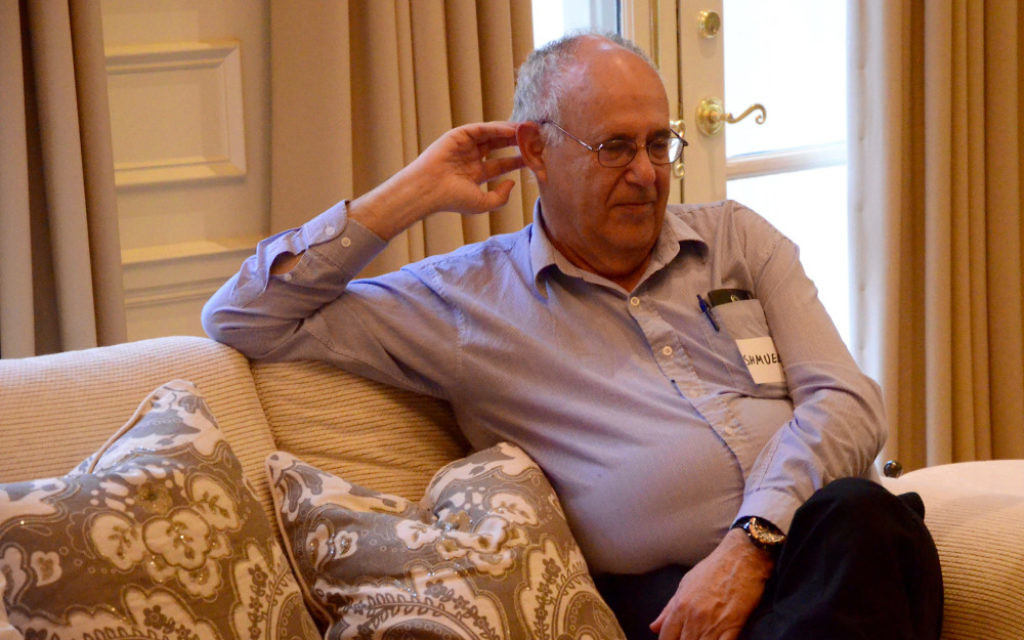Arava Environmentalist Sees Hope in Water

Israel and the Palestinians seem a long way from face-to-face peace talks, let alone from any kind of resolution. But Shmuel Brenner sees a way forward by stepping back from a comprehensive agreement.
Instead of trying to resolve all four big obstacles to peace at the same time — refugees, borders, Jerusalem and water — Brenner wishes the Palestinians would be willing to tackle just that last issue, an area where “it is possible to do things” now that Israel has largely solved its own water problems through conservation, recycling and desalination.
Brenner, the director of the Center for Sustainable Development at the Arava Institute for Environmental Studies, knows about Israeli-Palestinian negotiations. He was the lead Israeli professional on an environmental committee created under the Oslo Accords in 1995, and he has maintained contacts for environmental and water discussions through the years, including those developed at the Arava Institute.
Get The AJT Newsletter by email and never miss our top stories Free Sign Up
He said desalination plants for the Palestinians, supported with privately operated wastewater treatment plants that would not have to change hands based on where the final borders run, would be the core of a workable, scalable water solution. Such a resolution to one major issue could build trust for tackling the other areas of dispute, but Brenner said neither side’s leadership seems interested in an incremental approach.
“The chances are very, very, very small, but why not try?” he said.
Brenner told a small group about his 13 years with the Arava Institute as well as his involvement with Oslo and with Jordanian and Palestinian environmentalists during a brief visit to Atlanta on Wednesday, March 30. The gathering was part of the continuing observance the 20th anniversary of the institute, which was one of many nongovernmental organizations that formed amid the optimism of the Oslo Accords and is one of the few to survive the Second Intifada and the failure to make any peace progress since then.
But while the official peace process doesn’t exist, the Arava Institute has built multiethnic cooperation and environmental leadership among Israelis, Palestinians and Jordanians, and Brenner’s center within the institute has developed solutions that offer impoverished communities sustainable solutions for progress.
Brenner spoke at length about a biogas system that serves as a simple, scalable, relatively inexpensive, healthy approach to convert waste into energy. Demonstration systems have worked at the level of schools and individual families to improve conditions and raise people’s dignity among the Bedouin and in Ghana.
Now, Brenner said, it’s a matter of finding leaders willing to “see there is a hope and things can be done.”
Photos by Morris Maslia






comments